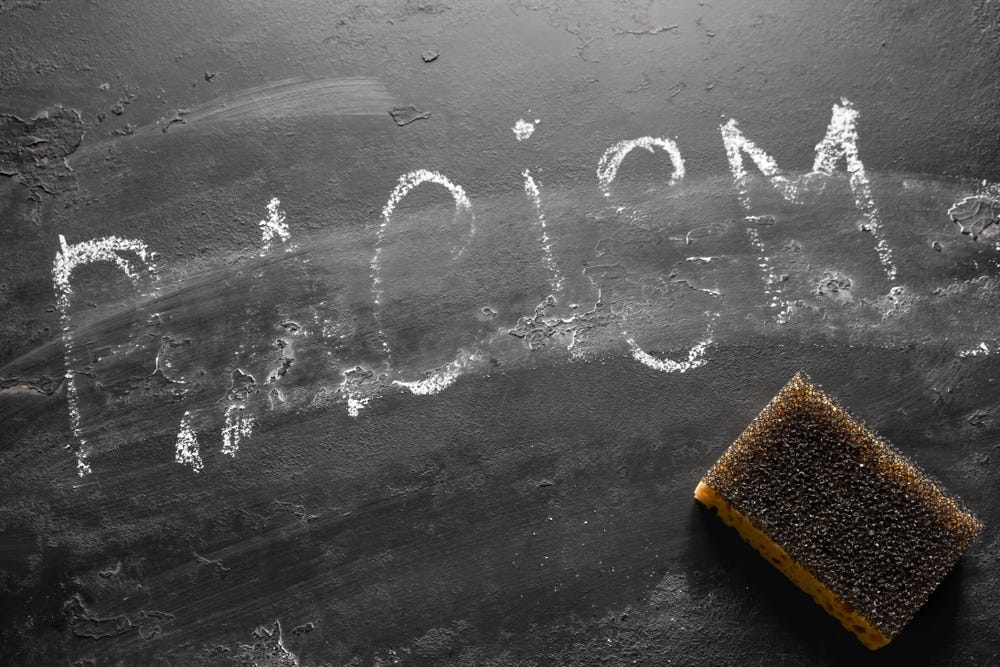E-Pluribus | May 18, 2021
Florida takes on (with an exception) Big Tech, punishing off-campus speech, and undermining parents.
A round up of the latest and best writing and musings on the rise of illiberalism in the public discourse:
Will Duffield: Florida Social Media Bill Overshadows Tech Week
A bill that attempts to regulate certain media and tech company behavior (that includes an embarrassing Disney carveout) is now awaiting the governor’s signature in Florida. The law is another example of Republicans clumsily attempting to address concerns that many in their base have over the power of Big Tech, which they perceive is being used against them.
The bill is comprised of two main sections. The first section establishes a state “antitrust violator vendor list” of disfavored firms. The second enumerates a host of new prohibitions and mandates planned to produce fairness in content moderation. Many are fairly technical; platforms must offer accurate view count tools, “provide a user with the number of other individual platform participants who were provided or shown content or posts,” give written explanations of all content moderation decisions, and store all data from banned accounts for free for 60 days. Platforms are prohibited from moderating journalists’ speech. These requirements may be enforced via private suit or administrative action under the Florida Deceptive and Unfair Trade Practices Act. Private suits utilizing the new causes of action are likely precluded by Section 230 of the Communications Decency Act, which give platform broad leeway to moderate, and stipulates that;
“No cause of action may be brought and no liability may be imposed under any State or local law that is inconsistent with this section.”
While Section 230 wouldn’t prevent administrative enforcement of the new requirements, the First Amendment would. The bill makes a “deceptive act or practice” of platform operators’ exercise of their basic First Amendment rights to speak or refrain from speaking. As Berin Szoka and Corbin Barthold explain, courts have repeatedly held that onerous regulation, even regulation intended to promote speech, raises First Amendment concerns if it makes carrying speech more costly or difficult.
[…]
Although perhaps unintended, the bill’s pursuit of unattainable neutrality will have the effect of requiring platforms to suppress political speech relative to discussions of other subjects. Section 4(2)(h) of the bill prohibits both “shadow banning,” defined as specific algorithmic deprioritization, or “post-prioritization” of speech from or about candidates for public office.
(h) A social media platform may not apply or use post-prioritization or shadow banning algorithms for content and material posted by or about a user who is known by the social media platform to be a candidate as defined in s. 106.011(3)(e)
“Post-prioritization” means action by a social media platform to place, feature, or prioritize certain content or material ahead of, below, or in a more or less prominent position than others in a newsfeed, a feed, a view, or in search results”
Intended to prevent platforms from putting a thumb on the scale by prioritizing some candidates’ speech over others, this stipulation ignores both websites’ rights to arrange content as they wish, and how most “post-prioritization” is responsive to user inputs.
Read the whole thing.
J.D. Tuccille: Americans Don't Want Schools To Punish Off-Campus Speech
Somewhat counterintuitively, it turns out students themselves are the group most inclined to permit schools to regulate their own off-campus speech, though another way to interpret the results is that students want schools to be permitted to regulate the off-campus speech of other students’ views they find distasteful. In either case, it raises the question of whether students are rejecting what they are taught about individual liberty, or not being taught it in the first place.
The public seems to share the Center's concerns, as the results of polling by The Economist/YouGov demonstrate. About 52 percent of adults oppose letting public schools punish students for online speech, an opinion held by 64 percent of independents and 63 percent of Republicans. Democrats are more divided, with 38 percent opposing such extended authority for schools and 37 percent supporting it. Perhaps reflecting trust in the people to which they've handed responsibility for their kids' education, just 37 percent of parents of school-age children oppose punishment for off-campus speech, but still only 45 percent support it.
Disturbingly, the only group with a majority favoring punishment for off-campus speech are the kids who would be subject to such power. "Most full-time or part-time students (54%) say that it is appropriate for public schools to enforce punishments for their speech online while outside the classroom," notes The Economist/YouGov. About 31 percent oppose such penalties.
You have to wonder just what public school students are learning about individual liberty and the limits of authority. Apparently, they're not being taught to value and protect their free speech rights. One likely lesson in the results (as if we needed a refresher) is that, when given the chance, government officials will instruct their charges that government officials should have more power.
Read it all at Reason.
ICYMI: Christopher F. Rufo: Subversive Education
In March, as part of his series on Critical Race Theory (CRT), Christopher Rufo of City Journal wrote of a February 2020 teacher conference in North Carolina that sought to educate teachers on “whiteness” and other topics under a larger “antiracism” umbrella. Despite (or perhaps because of) the contentious nature of the topic, teachers were cautioned about possible pushback from parents and encourage to not let it influence their instruction.
At the first session, “Whiteness in Ed Spaces,” school administrators provided two handouts on the “norms of whiteness.” These documents claimed that “(white) cultural values” include “denial,” “fear,” “blame,” “control,” “punishment,” “scarcity,” and “one-dimensional thinking.” According to notes from the session, the teachers argued that “whiteness perpetuates the system” of injustice and that the district’s “whitewashed curriculum” was “doing real harm to our students and educators.” The group encouraged white teachers to “challenge the dominant ideology” of whiteness and “disrupt” white culture in the classroom through a series of “transformational interventions.”
Parents, according to the teachers, should be considered an impediment to social justice. When one teacher asked, “How do you deal with parent pushback?” the answer was clear: ignore parental concerns and push the ideology of antiracism directly to students. “You can’t let parents deter you from the work,” the teachers said. “White parents’ children are benefiting from the system” of whiteness and are “not learning at home about diversity (LGBTQ, race, etc.).” Therefore, teachers have an obligation to subvert parental wishes and beliefs. Any “pushback,” the teachers explained, is merely because white parents fear “that they are going to lose something” and find it “hard to let go of power [and] privilege.”
[…]
The administrators have the logic backwards. Rather than seek to level cultural factors, they should seek to uncover and then cultivate the cultural traits that lead to academic success across all racial groups. Despite all the recent focus on racial issues in education, the greater disparity in student outcomes today is, in fact, related to social class. As Stanford’s Sean Reardon has shown, the class gap in academic achievement is now twice as large as the race gap—precisely the opposite of what it was 50 years ago.
Read it all here.
Around Twitter
Rutgers Law School student government gets heavy-handed on student groups:
Some “science” is more worth following than other science. A thread:
Renaming public buildings and other locations has received significant attention recently. Thomas Chatterton Williams has some thoughts about this phenomenon:










